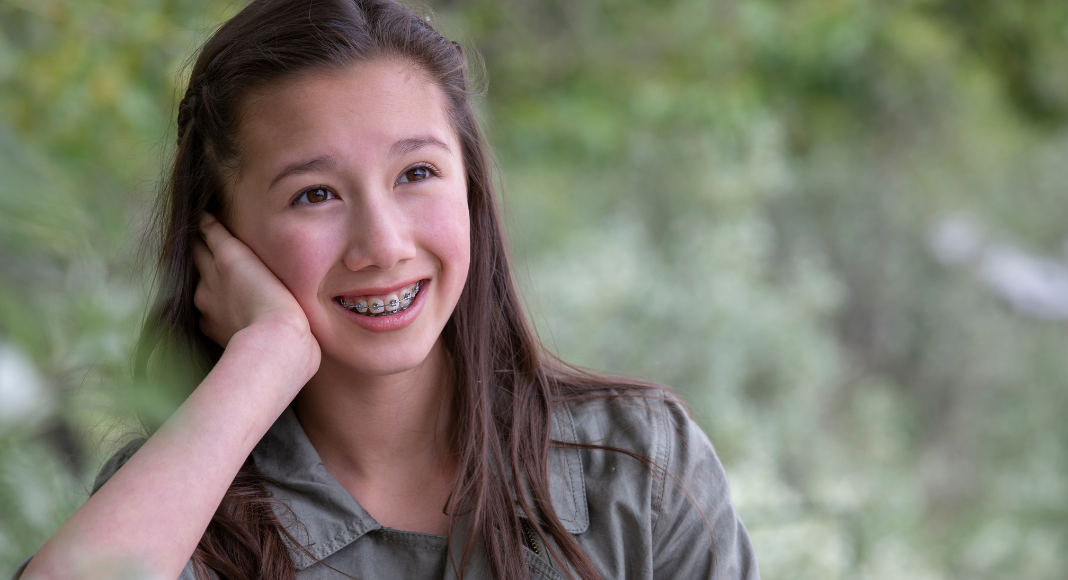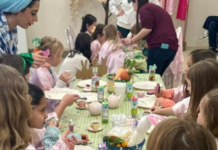 A couple weeks ago, I was talking with a group of moms when one mentioned she was angry a storeowner had called her daughter pretty.
A couple weeks ago, I was talking with a group of moms when one mentioned she was angry a storeowner had called her daughter pretty.
“We won’t be going back,” she said. “It’s inappropriate.”
I nodded, familiar with the sentiment. It reminded me of a play date back when I’d been a new mom. One of my daughter’s toddler friends had entered wearing an ice blue Elsa gown from Frozen, her whole face aglow as she waltzed into the room, her hands puffing out its bejeweled skirt. I took one look at her and gasped.
“Oh my goodness, don’t you look pretty! Look at that beautiful Elsa dress,” I said with a big smile.
The little girl smiled back. But everyone else in the room was quiet.
And then I remembered. I’m not supposed to call her pretty.
“I mean, uh, you are so creative to choose to wear that dress with those shoes. What a great style you have! You must really love Elsa, huh? She is such a strong and brave girl, just like you!” I’d said.
As I spoke, the tension lifted, and the conversation moved on. And over the years, I got better at complimenting my daughter’s friends. Mostly by never using the word pretty.
I understand why some psychologists and parenting experts argue against using the word pretty. In a world filled with unattainable beauty standards, no one wants their daughter to think her value comes solely from her appearance. It’s a message I agree with, a dream I share. However, I do not agree that erasing the concept of beauty from our home or my children’s self-image is the best way to achieve this dream.
Beauty lives all around us. I see it when I drink in a summer sunset on our town beach, when I walk into my gardens planted thick with hydrangeas and daisies and roses, and most of all, when I look into the three smiling faces of my children.
There is nothing more beautiful than those faces, filled with both innocence and happiness, that doesn’t yet know the harsh judgment adolescence will soon bring. And so I tell my children they are pretty, not because I want them only to value their looks, but because I want to give them the armor they will need to survive in today’s critical world.
I still remember the first time my friends judged me as a preteen at a sleepover. Crammed in a tent filled with girls, I listened as one of them dissected who was pretty and why. It was the first time I realized that not only did beauty matter, but it could come with qualifications. When this girl turned to me and said, I would be pretty if I lost my “baby fat,” I crumbled. For a moment, I doubted my self-worth.
But I came from a family that told me I was pretty, along with smart and hard-working and capable of achieving whatever dreams I worked towards. And so the comment rolled off. But what if no one had ever told me I was perfect just as I was? What if no one had ever given me the confidence needed to survive the harsh judgment of middle school, and the relentless pounding of the media?
Building that confidence today is even harder. In the ’90s, I could go home and escape many of the messages today’s teens can’t turn off – those that live in their social media feeds, filled not only with everyone’s best days but everyone’s filtered best days. Few of the faces and bodies they see are even real. But the message they send is. You are not pretty as you are.
A new survey from the CDC hints at how this message has damaged our girls, with 57% of high school girls reporting they experienced “persistent feelings of sadness or hopelessness” within the past year.
This statistic is heartbreaking and shocking. It should make all parents sit up and take notice, make us run up to our girls and tell them they matter, that the world of Facetune is fantasy, and that they are perfect just as they are, regardless of what their friends brag about online.
My oldest daughter is almost ten. She is on the precipice of middle school. It is only a year and a half away.
To prepare her, I tell her she is pretty. I tell her that pretty lives in the way a girl carries herself, in the light shining in her eyes. And that she will always be pretty, regardless of her weight or hair color or any other physical change that may one day come. I tell her it’s okay if others are pretty too. That we are all prettier when we support each other, and when we recognize the beauty that lives in us all.
No, I am not erasing pretty from my girls’ lexicon. Rather, I’m wrapping them up in as much praise as I can before I send them into a world I cannot control.
Of course, most days, we barely talk about my kids’ looks. It is much more fun to discuss my youngest daughter’s crazy dance moves or that new fact my oldest learned about history as she pores over novels on World War II.
Yet every morning before school, I tell them they look pretty. Because I want them to be proud of who they are inside and out. To have heard they’re pretty so often that no comment or imperfection can make them doubt its truth.
Like one of my daughters did a couple of weeks ago when we were on vacation in Florida. That morning she came out of the bathroom looking tense, her eyes concerned.
“What’s wrong?” I asked, sensing her stress.
“Mom, look at me! I’m covered in freckles!” she said, her voice wavering.
I smiled. “Yes, you are. I love your freckles. They’re so pretty, just like you.”
She stared at me for a moment, unsure. Then she smiled back in agreement.
And let me tell you, at that moment, her eyes shined, her shoulders rolled back, and she was beautiful.


























